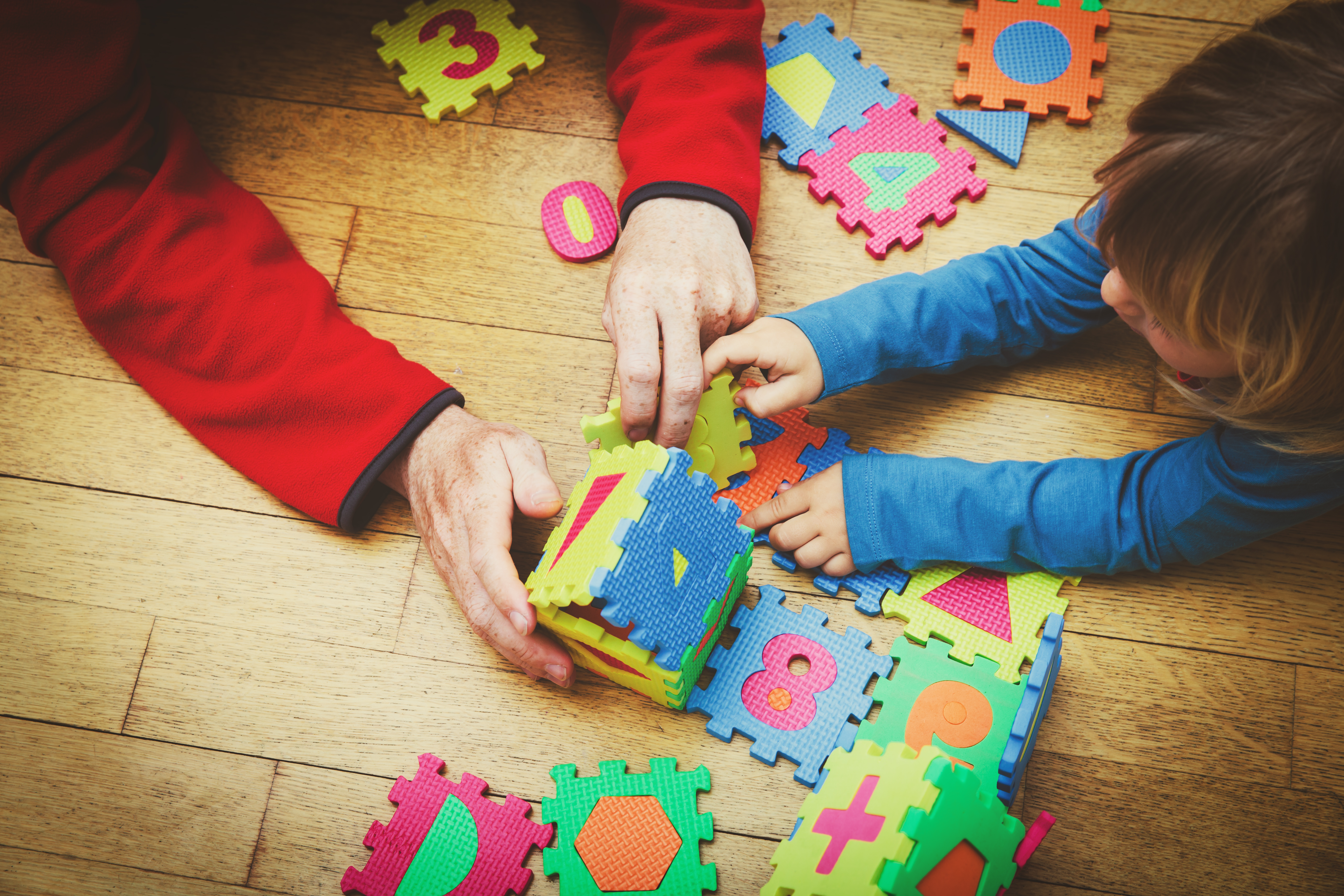My daughter's teachers stood up to my helicopter parenting. I'm so glad they did.
I was sure I knew what was best for my child. Turns out, I was wrong, and the teachers were right.


A free daily email with the biggest news stories of the day – and the best features from TheWeek.com
You are now subscribed
Your newsletter sign-up was successful
I was nervous. My daughter's school principal, counselor, several of her teachers, and I had gathered around a long conference table. I noticed that tissue boxes were scattered within reach, a reminder of parent/teacher meetings gone bad. I took a deep breath. I was about to make the case for why my daughter should repeat second grade. I had a bulletproof argument. I had rehearsed for hours.
My daughter was young, the youngest in her class. Many of her peers were nearly a full year older, but at the time she started kindergarten, we felt she was ready.
Two years later, I was roiled with doubt at the enormity of what we'd done. I wanted to undo it. I realized that although our daughter was performing fine academically, she wasn't emotionally on par with her classmates. In fact, I thought I saw small signs of anxiety in her. So I grew worried about my daughter. I wished for her emotional and social readiness to more closely match those of her peers. Succeeding at school meant learning to navigate friendships, present in front of peers, approach a teacher for help. I wasn't sure our daughter would ever be able to do these types of things as confidently as her classmates, some of whom were nearly a year older.
The Week
Escape your echo chamber. Get the facts behind the news, plus analysis from multiple perspectives.

Sign up for The Week's Free Newsletters
From our morning news briefing to a weekly Good News Newsletter, get the best of The Week delivered directly to your inbox.
From our morning news briefing to a weekly Good News Newsletter, get the best of The Week delivered directly to your inbox.
As I made my case, my voice was weirdly shaky and shrill. I felt the urge to release a sob trapped in my throat. I grabbed tissues. I dabbed around my eyes to mop up streaming mascara. Letting her progress would ultimately hinder her capacity to excel academically, I said, clearing my throat. I tried to pull myself together, but alas, my voice quivered like a child's. My argument was rational; I had given this thing, this painful thing called tough love, a lot of my time.
But it had also taken a lot of time and anguish to get to this decision. My husband thought the idea was extreme. I needed to hear what the professionals had to say. I wanted them to back me, console me, counsel me.
"She gets on with the girls in the grade below her," I said. "Her emotional maturity level is a full year behind."
But the principal, school counselor, and teachers did not agree.
A free daily email with the biggest news stories of the day – and the best features from TheWeek.com
"Bad idea," they said unanimously. "She is where she needs to be."
I didn't believe them. Surely, as her mother, I knew what was best for my daughter. But they pointed to spreadsheets tracking her academic achievements. Even if she were struggling, they said, holding her back a year would undermine her confidence, embarrass her, which could be even more damaging.
I was too close to the situation, they suggested. What I lacked was some perspective.
"She will catch up emotionally," they said. "She will be okay." I nodded, and tried to let those four words ease the worry inside me.
Schools have a lot on their hands, and surely, one of the greatest challenges for teachers and principals is dealing with stressed, over-reaching parents who, like me, can't see the bigger picture. What ostensibly counts as supportive parenting can sometimes inadvertently disadvantage a child. That mother who volunteers in their daughter's classroom every single day for years will smart when a teacher finally says: no more. That father of a kindergartner who arrives unfailingly at lunchtime to cut food into bite-sized pieces would do well to listen when a wise official suggests they let their son figure it out like his classmates. Those parents who fight to have their gifted child skip a grade may find themselves being told something similar to what I heard: Bad idea. She is where she needs to be.
A year after the meeting around the conference table, the final school bell sounded and kids poured out to waiting parents. I joined the others in the schoolyard while our children played wildly. When the carefree conversation turned to whose child had been tapped for the Talented and Gifted Program for the following year, I fell silent. I didn't even know parents had been contacted yet. I certainly hadn't. Evidently, my 3rd grader had not made the cut. I winced, feeling again the angst of having started her too early. She would have been admitted, she's capable! I thought.
Since some of my daughter's pals had been selected for the program, I knew I needed to talk to her about it. Word would travel quickly. But instead of taking it personally, she was relieved for her own sake: "I don't want more homework!" she said. And she quietly returned to her play, self-assured, confident, exactly everything I want her to be. And I remembered the truthful words from the school: She will be okay. In a flash, I knew how right they had been, and I felt grateful that I had listened to them. I also saw that, unconcerned with fitting in, my daughter was showing me how to be resilient to pressure, and ultimately, how to be a better human.
She will be okay. I will, too.
Kathryn Streeter is a freelance writer. Her work has appeared in publications including The Washington Post, SheKnows Media, and Brain, Child Magazine. Find her at www.kathrynstreeter.com.
-
 The ‘ravenous’ demand for Cornish minerals
The ‘ravenous’ demand for Cornish mineralsUnder the Radar Growing need for critical minerals to power tech has intensified ‘appetite’ for lithium, which could be a ‘huge boon’ for local economy
-
 Why are election experts taking Trump’s midterm threats seriously?
Why are election experts taking Trump’s midterm threats seriously?IN THE SPOTLIGHT As the president muses about polling place deployments and a centralized electoral system aimed at one-party control, lawmakers are taking this administration at its word
-
 ‘Restaurateurs have become millionaires’
‘Restaurateurs have become millionaires’Instant Opinion Opinion, comment and editorials of the day
